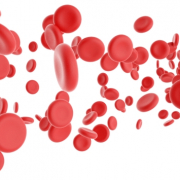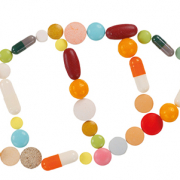All I want for Christmas is… a family history
At a time of year when many of us will be getting together with relatives, we explore the value of talking about your family’s health
This Christmas you could pay for a genome testing kit for yourself or a loved one; you could even buy one for the family dog. Or you could find out more about your genome for free, by talking to the people who share elements of it with you – your relatives.
Taking the opportunity to hear from your family members about health problems they may have had is a great way to show you care, but it can also shed valuable light on your own health susceptibilities and contribute to your family medical history.
What is a family medical history?
Individuals from the same family often share not only features of their genomes, but also similar environments and lifestyles. This means that information about our family members is an important predictor of the diseases that we may be susceptible to.
A person’s family medical history is a record of health information about both the individual and their close relatives. Parents, grandparents, children, siblings, aunts, uncles, nieces and nephews all contribute to the picture.
Why is it important to know?
Dr Christine Patch, Clinical Lead for Genetic Counselling at Genomics England, says: “One of the most powerful sources of genetic information that we have is family history. Knowing and talking about your family medical history can give useful information about specific health risks.”
Prior to the availability of genetic tests and genome sequencing, family history was the only available insight into our genomes. Studying how illnesses manifest in families was used to understand the heredity of rare, single gene disorders such as cystic fibrosis and haemophilia; and long before genes were even discovered it was known that some families have above-average prevalence of common conditions, such as heart disease and diabetes.
Family history information is as valuable now as it has always been. Even in the age of genomic medicine, family history is still an enormously useful tool for health professionals and is often the first step when deciding whether to refer a patient for genetic testing or genome sequencing. For example, the NHS commissioning policy for BRCA1 and BRCA2 mutations is that an individual qualifies for a genetic test if they have a 10% or greater chance of carrying a BRCA mutation. Family history is one of the most important things that will be considered when calculating this risk, and it will also be used to inform decisions regarding whether an individual should be offered additional screening or given lifestyle advice to reduce their risk of a particular condition.
“Knowing about your family history is essential to make sure you have the most accurate test,” says Dr Patch.
Further benefits: the power of the full picture
Family phenotypic data already has value when shared with your doctor but is particularly valuable when linked to genomic data. And the same is also true the other way around.
Genomic data is limited in its usefulness unless it can be interpreted – that is, the likelihood of any genetic variation causing disease can be determined. In order to do this, an evidence bank needs to be gathered. Genomic data is most useful when combined with other information about the people to whom it belongs. The more information there is available, the more useful it will be in understanding disease.
–









